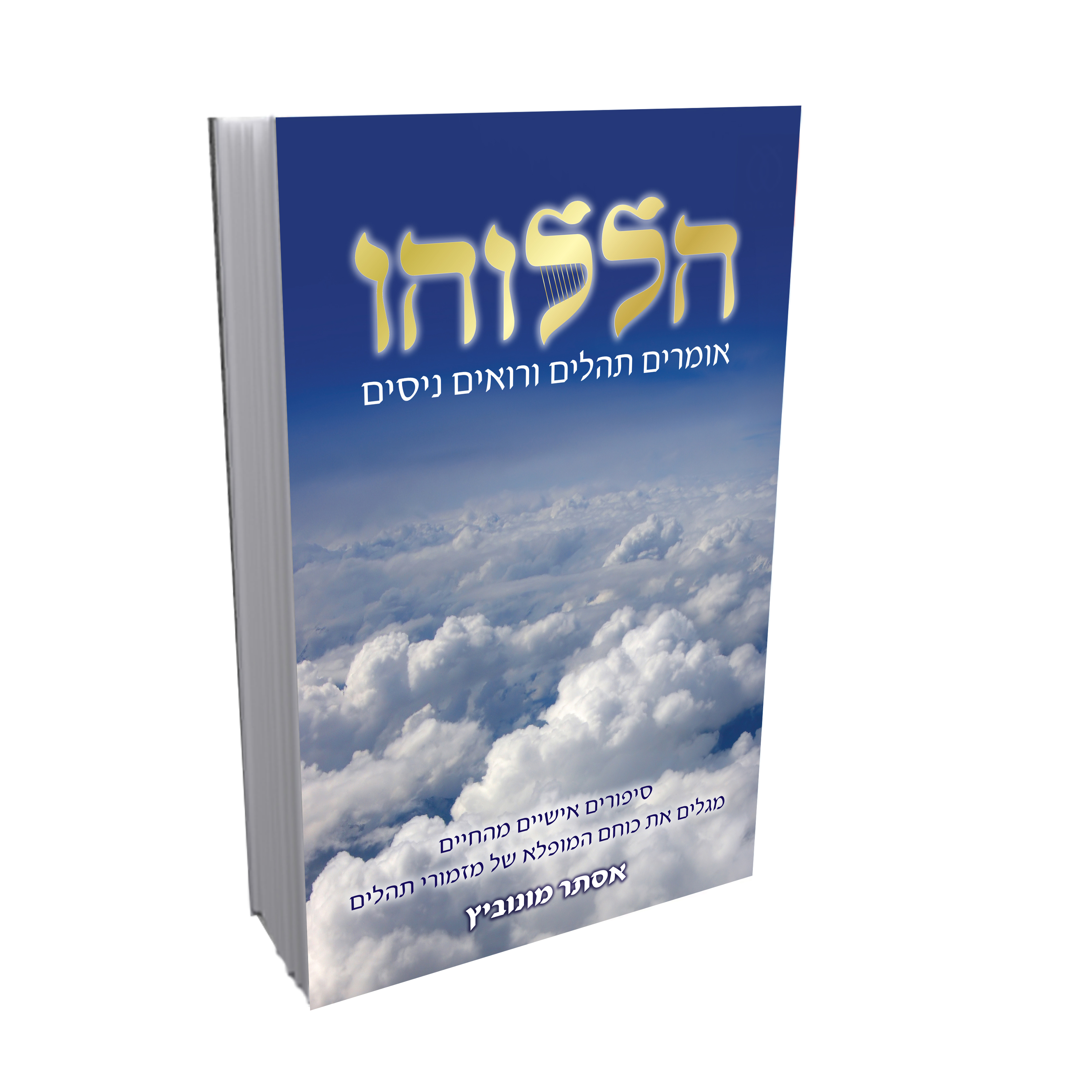Esther Monovich: "Suddenly I Realized the Secrets I Can Uncover"
Esther Monovich traces words in the Hebrew language and manages to decipher amazing secrets and gain stunning insights. What lies behind the word 'mockery'? And what's the secret of the word 'livelihood'? A fascinating journey.

Talking with Esther Monovich is nothing short of captivating. Every word she utters holds meaning, sometimes more than one. When she speaks, it's hard to keep up. It's challenging, but definitely worthwhile.
"I believe that part of where I have reached today is related to the processes I've experienced in my life," she begins by talking about herself. "My father came from a very important family, all part of the Gur Hasidic dynasty. Unlike his family, my father wanted to be modern and progressive, choosing to be part of the national-religious sector, and in such a home I grew up. For years, I belonged to the national-religious public, and only in recent years have I been privileged to make a transformation and strengthen a lot. I call it my 'return to the faith'. I truly feel I've come home. Some might question the phrasing, but I've heard from Rabbi Yitzhak Ginzburg, may he live long, that in the messianic generation even the righteous will 'return to the faith'... So for me, that’s precisely the process I was privileged to go through."

The Secrets Behind the Words
"Words have always been close to my heart," Esther adds as she moves on to talk about her current occupation. "I always observed their terminology, their roots, and I was intrigued to read them from every possible angle. It came naturally, as I worked among other things as a literature lecturer at a college, but over time, after becoming more devout, I became a lecturer in Judaism."
The special thing about Esther’s lectures, as well as the books she wrote and the cards she released, is that they are all made of 'secrets of words'. "Every time, I try anew to read the words I encounter and check what they want to convey to me," she explains. "It all started because I got myself used to reading the parsha together with the ba'al koreh, word for word. Once, while reading Parashat Yitro, I saw it written 'And all the people saw the sounds'. Of course, the well-known question arose in me – how can sounds be seen? Sounds are only heard, and indeed I saw an interpretation saying that Moses heard Hashem's sounds from all four corners of the world, and meanwhile, the children of Israel saw letters of fire from the heavens, but by then I had already been inspired and noticed that the word 'sounds' can also be read as 'kol-ot'. This fascinated me, because that’s exactly what I relate to: examining the letters and seeing what they teach me."
Since that day, Esther has discovered thousands more fascinating words in the Hebrew language, which she managed to analyze and draw life lessons from. "Take, for example, the word 'leper' (metzora)", she tells me, "if you notice, you can split the word into two: 'find-bad' (matza-ra). The leper is one who found fault in his friend, spoke badly about him, and was therefore punished with leprosy. Or take the word 'air' (avir). It can be read as 'light of Hashem' (or-Ha). It’s the light of Hashem. And the word 'thank you' (todah) is actually 'awareness' (toda'ah). If we remove the letter Ayin from 'awareness', we get the word 'thank you', and when do we say thank you? When we have a 'good eye'.
"Interestingly, in a large number of the words I study, I later encounter in different commentators similar things to those I thought of. Of course, I always emphasize in my lectures that my goal is not to interpret the Torah, Heaven forbid. Who am I to compare my interpretations to those of the holy sages? But when I see in great commentators things that connect to my thoughts, I feel a kind of completion. Because our holy language is so amazing, everything is in it, everything exists in it."

Words with a Message
If you thought that Esther’s goal in deciphering words is for amusement and word play, it turns out things are fundamentally different. "My only and single goal is to learn, through the secrets of words, how to properly behave in the service of Hashem," she explains.
"For example, if we take the word 'livelihood' (parnasa), we can see it can be read as 'tame-mouth' (resen-peh). Meaning – whoever doesn't guard their mouth might lose their livelihood. Or the word 'healing' (refua) – it can be split into the words 'light-mouth' (or-peh). If we emit only good words from our mouths and mainly take care to pray and say Tehillim, we will, with Hashem's help, merit bodily healing. And from the word 'love' (ahava) one can derive the acronym 'Light Holy Blessed Hashem' (Or Hashem Qadosh Baruch Hu). And who is our greatest lover if not Hashem? By the way, even 'crisis' (mashber) can become 'messenger of good news' (mevaser), and if we look at the letters Ayin, Peh, and Tzadi, and write them out fully, we see that one who has a 'good eye' and guards their 'mouth' is worthy to be a 'righteous person' (tzadik). It also illustrates to me time and again how much we need to guard our language, because the words we utter carry so much significance. We mustn’t take them lightly and use them vainly."
Many of Esther’s interpretations and word plays have already become very common and widely used in the public. For example, the word 'gift' (matanah) which is actually the biggest gift one can receive, or the word 'disrespect' (zilzul) where you can hear the words 'cheap, cheap', and the word 'mockery' (haktana) which turns into 'smallness'. The possibility of turning 'troubles' (tzarot) into 'treasures' (otzarot) also came from her.
"The concept of turning troubles into treasures is something I often use in many fields," Esther explains, "because the letter Aleph is the first of the letters and hints to us about the Master of the World, and when we connect to the Master of the World, we see everything as treasures. It’s not just recitation or a slogan, if a person lives like that, that’s exactly how they feel."
How do you come up with all these ideas?
"It’s all about *siyat ha-dishmaya*, these are things that simply erupt in me from inspiration," she explains, "but beyond that, it seems to me that with a bit of depth, others can think of them too. Here, try your strength," she invites me. "Take, for instance, the word 'difficulty' (koshi). What word is hiding inside?"
I ponder for a moment and answer what seems most natural: "The word 'straw'. The difficulty makes us feel like all surrounding things are dry and bland like straw."
Esther smiles at my answer and replies that it all depends on point of view. "What do you think about seeing in 'difficulty' the word 'gift' (shi)? After all, when a person experiences difficulty, they can choose how to deal with it, and there is an option to find within the difficulty the gift, the greatest present."
Finally, Esther wishes to mention a word she particularly loves: the word "person" (adam). "If we take this word and write it vertically with full letters, we discover something amazing," she claims, laying out before us the following analysis:
Aleph
Dalet
Mem
"After we take the first letters that make up the word 'adam', we are left with the word 'prays' (mitpalel)", she says, "because what is the essence of a person? To pray. I also read in one of the Admor’s books that 'it is worth calling a person 'one who prays'. "Our entire existence, especially during this time, should be prayer," she concludes.
To contact Esther:estimonovich@gmail.com

